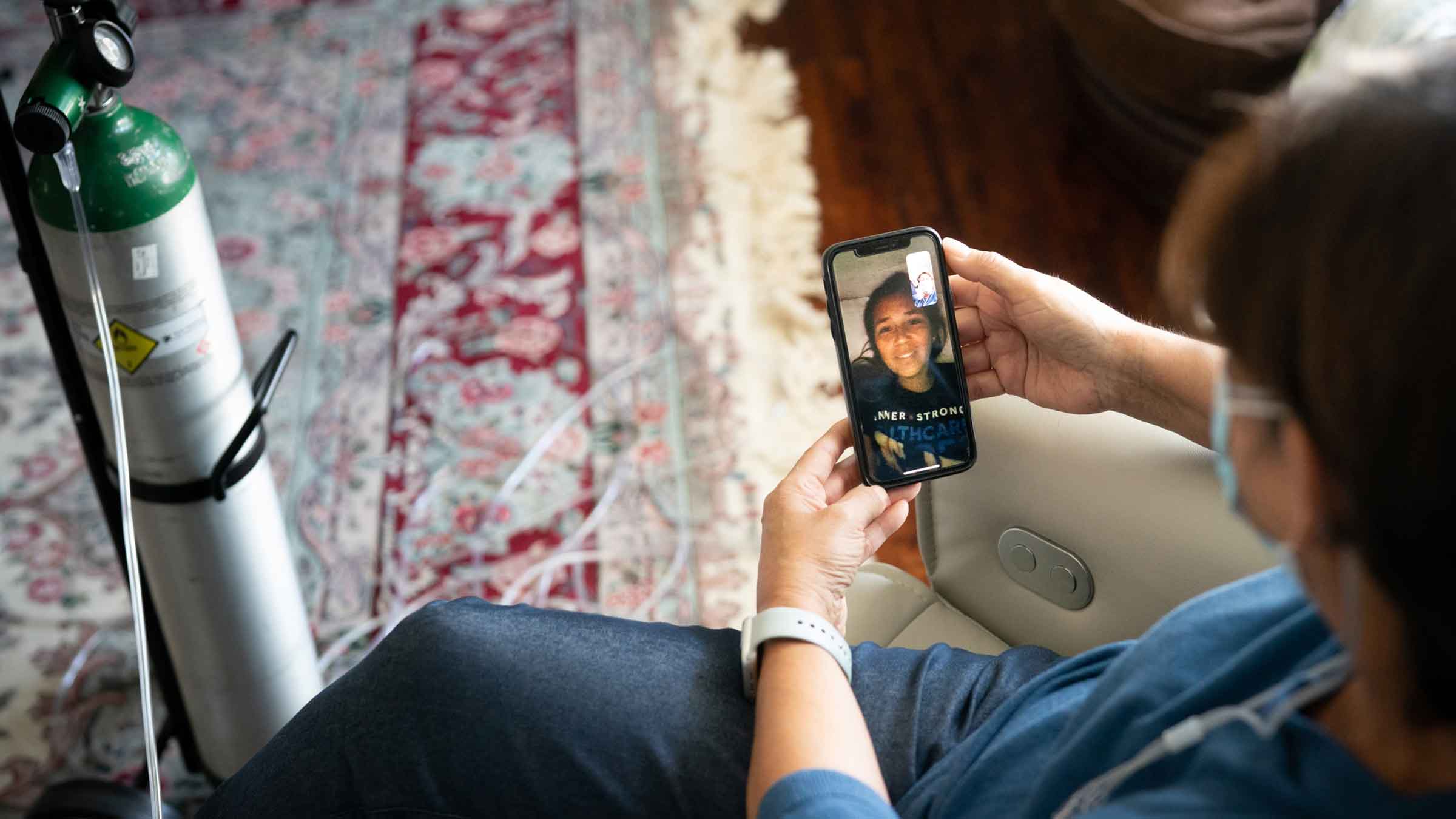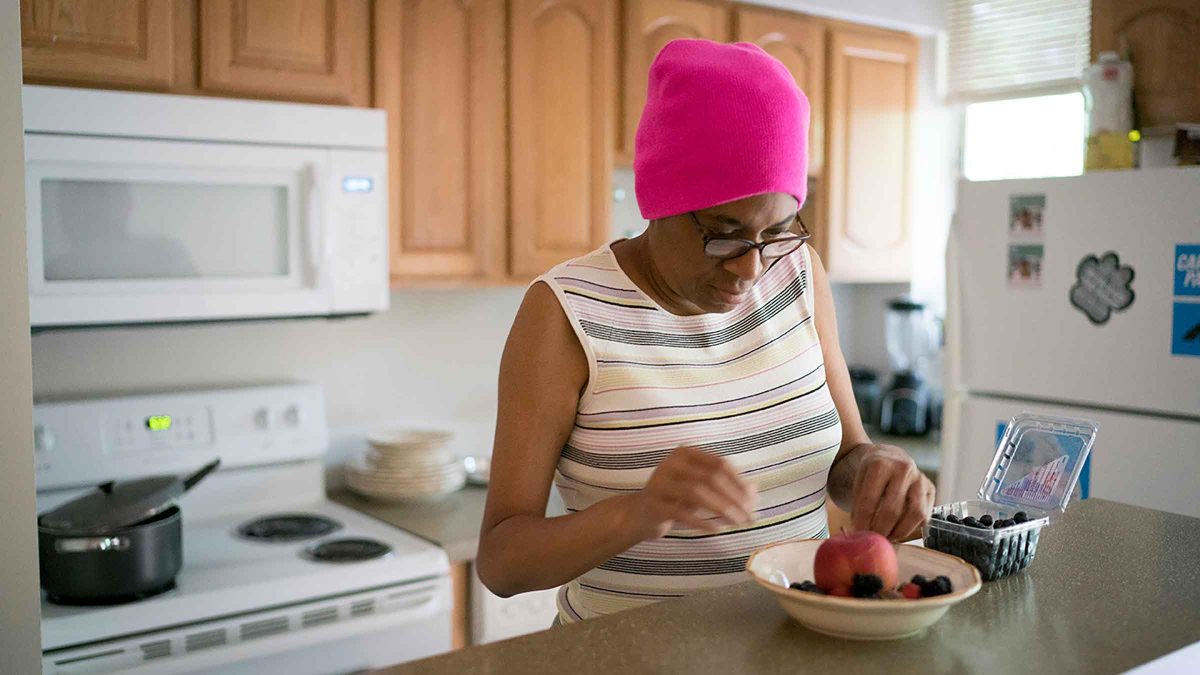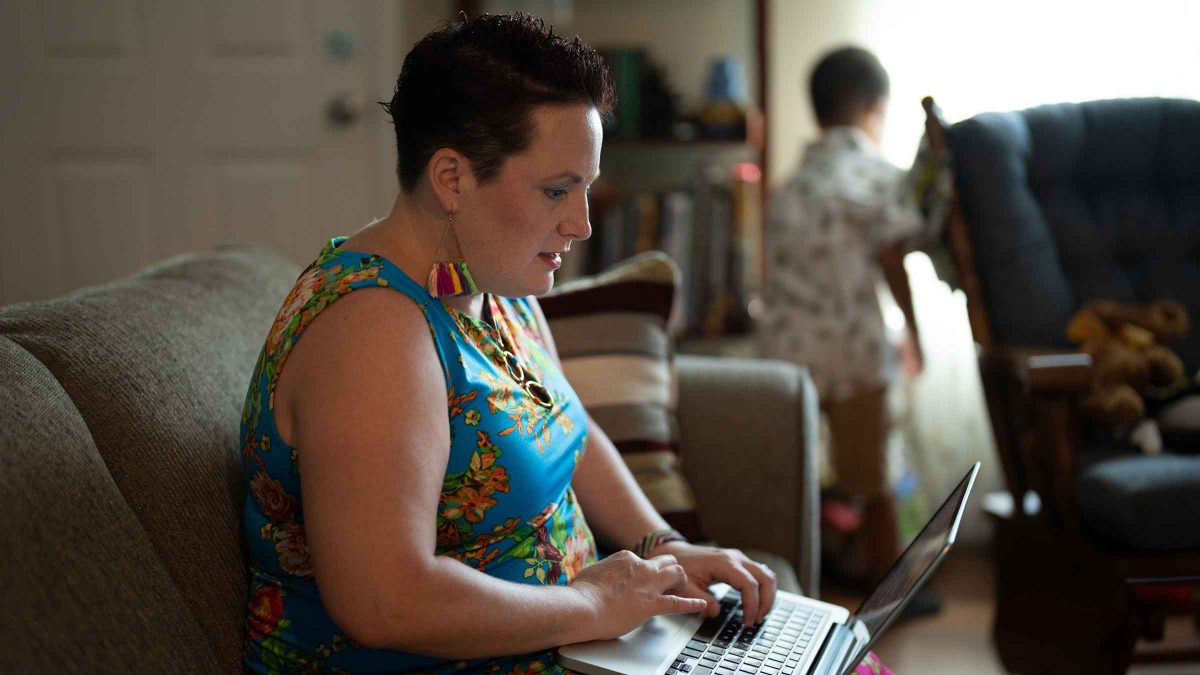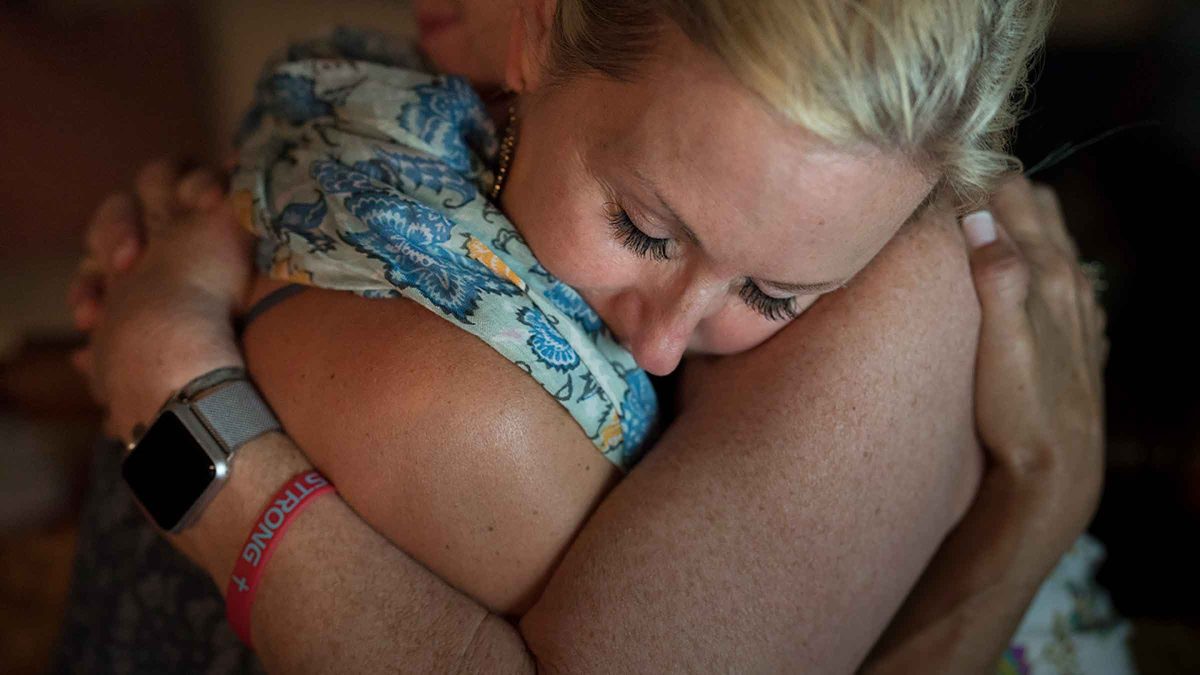7 Helpful Tips for Long Distance Caregivers

CaringBridge Staff | 03.08.22
Maybe you have an aging parent who lives a few hours away. Or, maybe one of your children who lives out of state has recently suffered an injury. You want to be near them and care for them, but distance, whether it’s your physical location or created by COVID restrictions, makes regular care a real challenge.
We know that being away from those you love is incredibly tough. Fortunately, there are some creative solutions that may help you care for your loved ones and show up for them, even from afar.
1. Sign Your Loved One Up for Food Delivery

If your loved one struggles to make meals for themselves, one thing you can do is to sign them up for a food subscription service.
Through these services, all ingredients and simple food prep instructions are sent straight to your loved one’s home, no trips to the grocery store required. And if cooking isn’t feasible, you can always send their favorite meal via a delivery service.
Other Helpful At-Home Services
There are other services you can sign your loved one up for that might be helpful around the home. These services include everything from lawn mowing to house cleaning. Ask your loved one or their local caretaker what services they could use the most and look into local help in their area.
2. Consider Hiring a Part-Time Caregiver
Long distance caregiving for an aging parent can make you feel nervous about leaving them for long periods of time. A part-time caregiver could help your loved one with daily chores and tasks, and give you some much-needed peace of mind while you’re unable to be there.
There are various ways to find a part-time caregiver. For example, you can search online for home care agencies near your loved one’s home. Or, if you’re able, you can speak to your loved one’s doctor who will be able to direct you toward home care resources.
Ask for Help From Nearby Family Members or Friends
We know it can be hard to ask for help. But the reality is, you can’t do it all by yourself. Consider asking local family members or friends to check in periodically. Or, see if they would be willing to be on standby in the event of an emergency. Chances are, they’ll be ready to do what it takes to support you.
“Do your best to establish good relationships with the caregivers who are with your loved one on a daily basis. Treat them with love and respect and they will do the same for your loved one and you.”
Bethany D.A.
3. Try a Tech Tool to Stay Connected

While you’re away, you’ll want to stay connected to your loved one. Technology tools can make this easier.
Video Calling Tools
Free video conferencing tools exist that can make video chatting with your loved one simple. You can use your phone or a computer to video chat, almost like you’re in the room. Plus, these tools have simple controls that even those who aren’t exactly tech-savvy can use.
Digital Photo Frames
Another easy way to stay connected is with a digital photo frame. These frames can be synced to your phone so any time you take a photo, it’s shared on the frame. For example, your aging parents may enjoy seeing updated photos of you or their smiling grandchildren.
“Buy a Frameo. It has been a blessing. My kids can send pics and videos of whatever they are doing, and it automatically updates on the picture frame. It keeps your loved ones informed without trying to coordinate times to call, Zoom, Facetime.”
Loretta L.
4. Help With Monthly Bills
One way to simplify caring from a distance is to offer to pay a monthly bill. For example, you could offer to pay a utility bill or pay for your loved one’s favorite TV streaming service.
You could also send your loved one a gift card for groceries or toiletries from online retailers. Or, perhaps a gift card to their favorite bookstore. This seemingly small gesture is a simple way to remind your loved one that you’re always thinking of them, even when you’re away.
5. Create & Store a Critical Information Binder
As a long distance caregiver, you probably have a plan in place in the case of an emergency, especially for an aging parent. However, does everyone who provides care for your loved one have easy access to documentation such as wills and medical histories?
An easy way to ensure everything is in one place is to create a critical information binder. This binder can include all documents such as insurance information, wills, medical histories, and financial information. You can then store this in a safe place so it’s readily available should you need it.
You can create a physical binder to keep in your loved one’s home as well as a virtual binder you can access from anywhere. For example, you can scan your loved one’s documents and save them to a folder on your computer.
In the event of an emergency, having your loved one’s medical, insurance, and financial information organized can help ensure they receive the care they need without delay. It can also save you the added stress of searching for missing documents.
6. Spend Quality Time With Your Loved One

When you visit, you may feel the urge to spend most of your time on caregiving tasks such as cleaning, cooking, and organizing care. While these are critical tasks, be sure to spend some quality time with your loved one while you’re visiting, too. This will help you both connect, make memories, and relax together—even if only for a moment.
Spend time together doing things you both enjoy. For example, take a walk or go out for lunch. Or, sit over a cup of coffee and reminisce about days past. These are the moments that can inspire you to keep going through the harder days.
7. Help Your Loved One Set Up a CaringBridge Site
As a caregiver, it can be overwhelming to try and keep everyone updated on the status of your loved one. And a plethora of phone calls and texts each day may be hard on you during this time. By setting up a CaringBridge site, you or your loved one can update everyone on how they’re doing with just a few clicks.
For example, you or your loved one can use the journal to add health updates or just share what they’ve been up to. Family and friends can then react to those entries and leave encouraging comments. You can also use the Planner feature to make planning caregiving tasks easier.
What’s Your Long Distance Caregiving Story?
Have you been caring from a distance? Do you have any tips or stories to share? If so, we’d love to hear more about your experience in the comments below. Your insight might just inspire someone else to keep going.
Don’t Go Through Your Health Journey Alone
You can stay connected to friends and family, plan and coordinate meals, and experience love from any distance.
All of this is ready for you when you start your personal CaringBridge site, which is completely free of charge, ad-free, private and secure. Don’t spend another minute alone!
Fresh flowers or a small bedside plant with a little plastic “pet” cat or dog stuck in it can be a mood brightener and a physical manifestation of your caring and good wishes. A small photo album of good memories brings cheer whenever viewed. If they are up for it, watch an old movie or sitcom together. Get the word out and have old friends send a card twice a month, randomly. Bring a treat if they can eat—a freshly ripe peach, a little bowl of perfect strawberries. Bring nice lotion and offer a gentle hand or foot massage. A light touch can be so comforting. Bring a book of poetry, especially about nature, and read to them.
My friend had a heart attack in 2008 – did ok until last few years. He lived alone. Was the only one there for him in 2008. Since then I kept his freezer full of homecooked low sodium meals. Went every other week to go take care of him – trips to doc., etc. He got to the point he could no longer stay by himself out in the country and I brought him to live with me. He has congestive heart disease and has two cracked bones in his lower back. Can not get up out of bed, out of a chair, or off of the commode without help. Because of his back I have problems getting him in and out of my low car. We have home health. He has no children. He has siblings who live near by but do not help out. One never calls or visits. One calls but only 1 visit in forever and a sister who lives further away who never comes – just sends cards ‘praying for you – sending blessings’ and the enveloped packed with stupid cut out funnies from the newspaper. He is 78 – I am 82. We are not married but I think the world of him; have been in each other lives since 2003. For him I am so angry at the siblings, but he does not seem to care. I am tired, very tired – but I am so angry at the siblings. My life is 24 hour taking care of him – many, many doctor visits -Thank God I am healthy and can do it.
My mother lives 2,000 miles away from me. She is 92 years and my sister, who lives with her, has been the primary 24/7caregiver for all her needs for almost 10 years. The past 4 years have been very challenging and stressful for my sister. She is burned out. She feels her life is slipping away since she can’t really have any hobbies, or spend time with friends or attend events – very little ‘me’ time.
Because of the pandemic, I have had the opportunity to be able to work from home full time. This has allowed me to provide care for our mother by staying with her for extended time periods (6 weeks twice a year, 3 months a year). This arrangement provides a fresh person to care for our mother, relieves my sister from the day to day duties if only temporary, and gives me the opportunity to help in a more meaningful way and experience and cherish new moments with my mother.
My father and his wife live abroad. I have tried my best to clean while there, but they hate interference in any way around the house. Any solutions? I have suggested a caregiver/cleaner, but that was also not popular!
I try to send something every week to a family member/caregiver — a greeting card, an e-gift card for a local restaurant, a box of favorite cookies, a book–so they know they are thought about and loved. Isolation, or fallen-away family and friends, makes caregiving so much harder and lonelier.